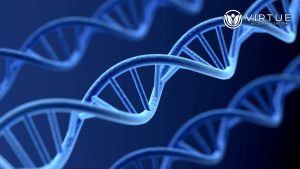Key Takeaways:
- Dual diagnosis is becoming more common in Arizona, especially among working women who are dealing with both trauma and drug abuse.
- GHB (Gamma-Hydroxybutyrate) use is alarmingly linked to untreated trauma, which can have serious effects on both mental and physical health.
- There are more cases of women addicted to GHB and having mental health problems at the same time in cities like Phoenix, Mesa, Tempe, and Scottsdale.
- For effective healing, it is important to have access to full recovery programs like the Alcohol Detox Program, the Drug Detox Program, and Dual Diagnosis treatment.
- Getting help from certified treatment centers like Virtue Recovery Detox Sun City West can make a huge difference in a woman’s recovery journey.
Introduction
In Arizona’s changing job market, many women seem to be doing well at work while quietly dealing with wounds that aren’t visible. Trauma isn’t just a memory for more and more of these women; it drives them to use harmful coping mechanisms like drug abuse. Dual diagnosis in Arizona, or having both a mental health disorder and a substance use disorder, is very common in Arizona, especially among working women who use GHB to hide their emotional pain.Gamma-Hydroxybutyrate, or GHB, is a strong depressant that can dangerously blur the lines between being aware of something and having an unconscious trauma. It is also known as a “club drug.” Sadly, a lot of women turn to it thinking it will give them temporary relief, not knowing how addictive it is and how bad it is for their mental and physical health in the long run. When someone has both trauma and drug addiction, getting help is harder, but not impossible.
What Makes GHB So Dangerous for Women Who Have Been Traumatized?
Because it makes people sleepy, GHB is often called a “date rape drug.” GHB affects memory, judgment, and motor skills quickly, which makes users very vulnerable. This is different from other stimulants and depressants. It lowers inhibitions, which can be very dangerous for people with post-traumatic stress disorder (PTSD) who already have trouble controlling their emotions.Women who work in high-stress fields, especially in cities like Phoenix and Scottsdale, are more likely to get sick. The pressure from society to do well without showing signs of struggle can make them self-medicate. Sadly, this behavior often leads to a dependency that makes their trauma worse and puts them at risk for new problems like sexual assault, overdose, and legal trouble.The Substance Abuse and Mental Health Services Administration (SAMHSA) says that women who have unresolved trauma are much more likely to develop substance use disorders, especially when it comes to central nervous system depressants like GHB.How Does Having Two Diagnoses Make Recovery Harder?
For women who abuse drugs because of trauma, detox alone isn’t enough to help them. In cases of dual diagnosis, both the addiction and the mental health problem that caused it must be treated at the same time. Ignoring one often causes the other to come back. More and more mental health clinics in places like Tempe and Mesa are finding people who have both a mental illness and a problem with GHB. Sadly, a lot of women don’t get the right diagnosis or don’t get one at all because of stigma and a lack of knowledge. This is where programs like a full Drug Detox Program and Dual Diagnosis care become very important.According to the National Institute on Drug Abuse, proper care for co-occurring disorders results in significantly better long-term outcomes than treating either issue in isolation.Are Trauma Survivors in Phoenix Also Dealing With Alcohol Addiction?
GHB is a big problem, but alcohol is still a more socially acceptable way for women to deal with trauma, even though it’s just as dangerous. Many of these women start out drinking casually to “unwind,” but then they become addicted. There is a growing need for alcohol addiction rehab in Phoenix, especially among working women who have trouble balancing their public success with their private pain.GHB abuse often goes hand in hand with alcohol addiction, especially when women use one drug to counteract the effects of the other. This polydrug use makes the chances of overdose, liver failure, and cognitive decline go up a lot. The Centers for Disease Control and Prevention say that drinking alcohol for a long time can make depression and memory loss worse, especially in women.The best way to get better is to sign up for a personalized Alcohol Detox Program. This will help you with both your physical and mental health. For people who have been through trauma, emotional sobriety is just as important as physical sobriety.
How Does DXM Abuse Affect the Treatment of Trauma in Working Women with Dual Diagnosis?
Dxm abuse connection significantly impacts the treatment of trauma in working women with dual diagnoses. The altered mental state induced by DXM can exacerbate existing trauma symptoms, complicating therapy. Understanding this connection is crucial for healthcare providers to tailor effective interventions that address both addiction and trauma recovery in these vulnerable individuals.









